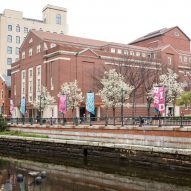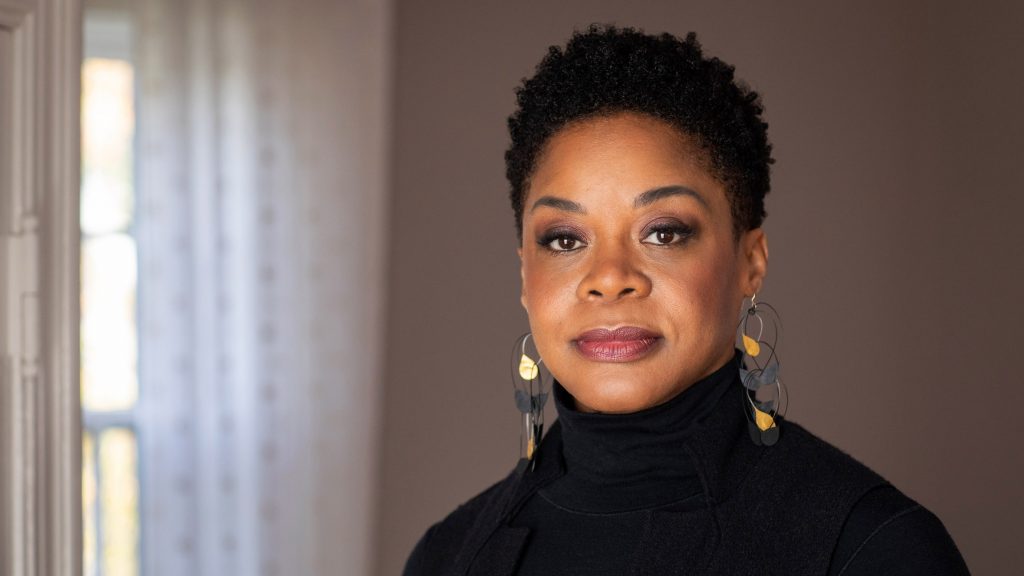Architecture education needs "decolonisation and decarbonisation" says London School of Architecture head Neal Shasore
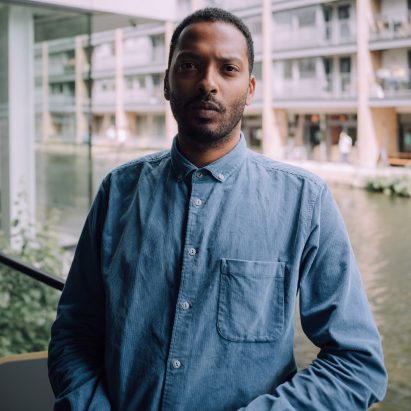
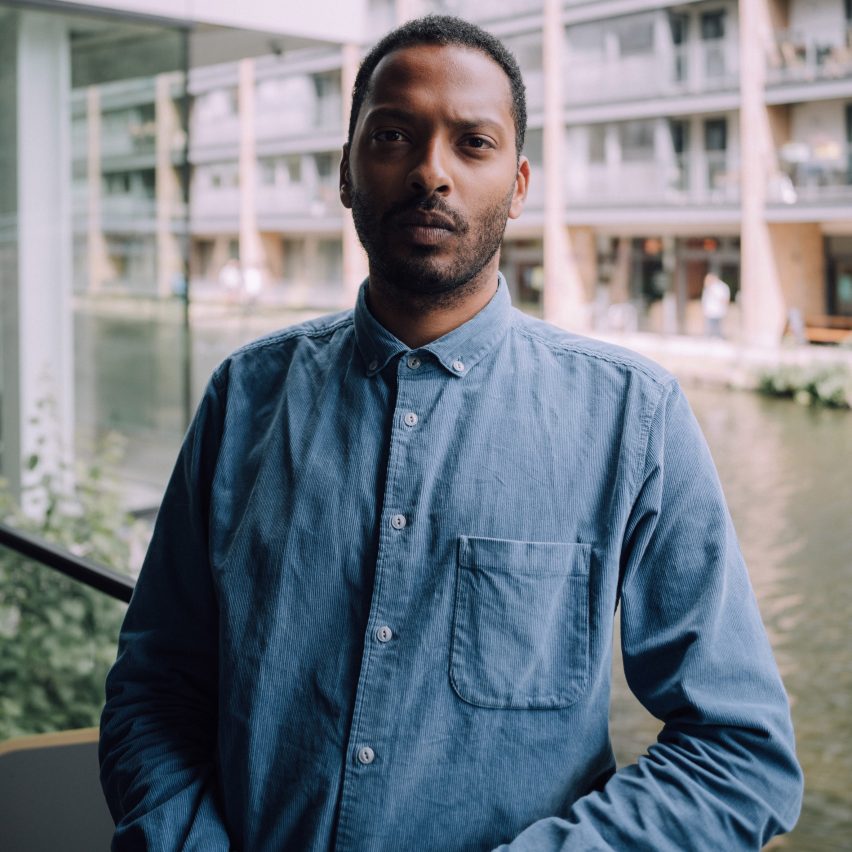
At just 32, the self-proclaimed "outspoken" historian Neal Shasore has become the head of the London School of Architecture. In this exclusive interview, he told Dezeen of his plans to make the school a beacon of inclusivity.
"Decarbonisation goes hand-in-hand with decolonising," said Shasore. "It means encouraging students to think about their projects in terms of sustainable and regenerative design solutions."
Shasore, who was appointed the London School of Architecture (LSA) head and chief executive officer in June 2021, believes that architecture education needs to respond better to today's social and political climate.
Changing with the times
He argues that "decolonising" the study of architecture – a contested term which broadly means separating it from the legacy of European colonialism – can pave the way for a more diverse industry.
"We need to look for radical territory and the new frontiers," the 32-year-old told Dezeen from the top floor of the LSA's east London base.
"Decolonialsim is an incredibly creative, stimulating and radical critique of the world," he added.
The LSA was founded in 2015 as an independent school of architecture – the first to open in England since the Architectural Association was established in 1847. Shasore is the first Black head of the school.
[ 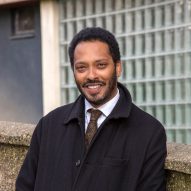
Read:
London School of Architecture names Neal Shasore head of school
](https://www.dezeen.com/2021/03/02/london-school-architecture-neal-shasore-head-of-school-ceo/)
"One of the founding objectives of the school was to broaden access and make more affordable architectural education," said Shasore, who is a historian of Nigerian and Indian descent.
"But the LSA's vision was written before Black Lives Matter, before the declaration of a climate emergency, before Rhodes Must Fall and before George Floyd," he continued.
Shasore argues that the LSA's ethos must now adapt in line with recent political events such as the furore over the statue of 19th-century imperialist Cecil Rhodes and the wave of Black Lives Matter protests following the 2020 murder of African American George Floyd at the hands of police.
"I think that making more prominent those calls for racial equity and spatial justice need to be front and centre in that vision," he continued.
Racial reckoning in architecture
His call for such a shift comes at a moment of racial and social reckoning within the architecture industry.
Progressive steps such as Scottish-Ghanaian architect Lesley Lokko becoming the first Black architect to curate the Venice Architecture Biennale are broadening diversity within the field.
At the same time however, allegations of sexist and racist treatment in the industry have become more widespread, as in the case of The Bartlett School of Architecture.
The LSA provides students with a two-year postgraduate programme on subjects including designing cities and critical theory. In their second year, students embark on a practical course in which they are supported in seeking placements in London.
It has a reputation for taking an ambitious and innovative approach to teaching, with an emphasis on student empowerment.
"Diversity and inclusion is hard"
Shasore plans to use his previous experience as a visiting lecturer at the University of Cambridge's architecture school and as a course tutor for the MArch professional practice studio at the Royal College of Art to overcome some of the potential pitfalls that architecture institutions fall into when trying to become more inclusive.
"What I've learned over the last few years is you have to be in the room and you have to be outspoken," he said. "Sometimes that can be very uncomfortable."
"Diversity and inclusion is hard: it requires people to think harder, to be braver and to make less convenient decisions," he added.
Shasore cites listening to marginalised voices and broadening access to higher education as key ways to achieve "spatial justice".
He draws on his plans for fire and safety regulation training at the school, which will involve the 100 LSA students undergoing lessons about the Grenfell Tower fire as a more concrete example of how to decolonise education and the importance of recentering the voices of those who have historically been ignored.
[ 
Read:
Now You Know book aims to challenge racial inequality in architecture
](https://www.dezeen.com/2021/08/03/sound-advice-now-you-know-book/)
Grenfell Tower was a council-owned high-rise block in west London which was destroyed in a terrible blaze in 2017 as flames spread across its recently installed cladding system, claiming 72 lives.
A failure to listen to the voices of residents at Grenfell Tower − many of whom were from ethnic minority backgrounds − during its refurbishment has been repeatedly touted as a reason the building became so unsafe.
"One of the ways I would like us to teach that which is arguably quite technical and regulatory is not to lose that frame of the kind of broader picture of, in that case, racial and class inequality.
"The tragedy of Grenfell only reinforces that the ability to listen to and engage with diverse voices in the production of the built environment is vital," Shasore stressed.
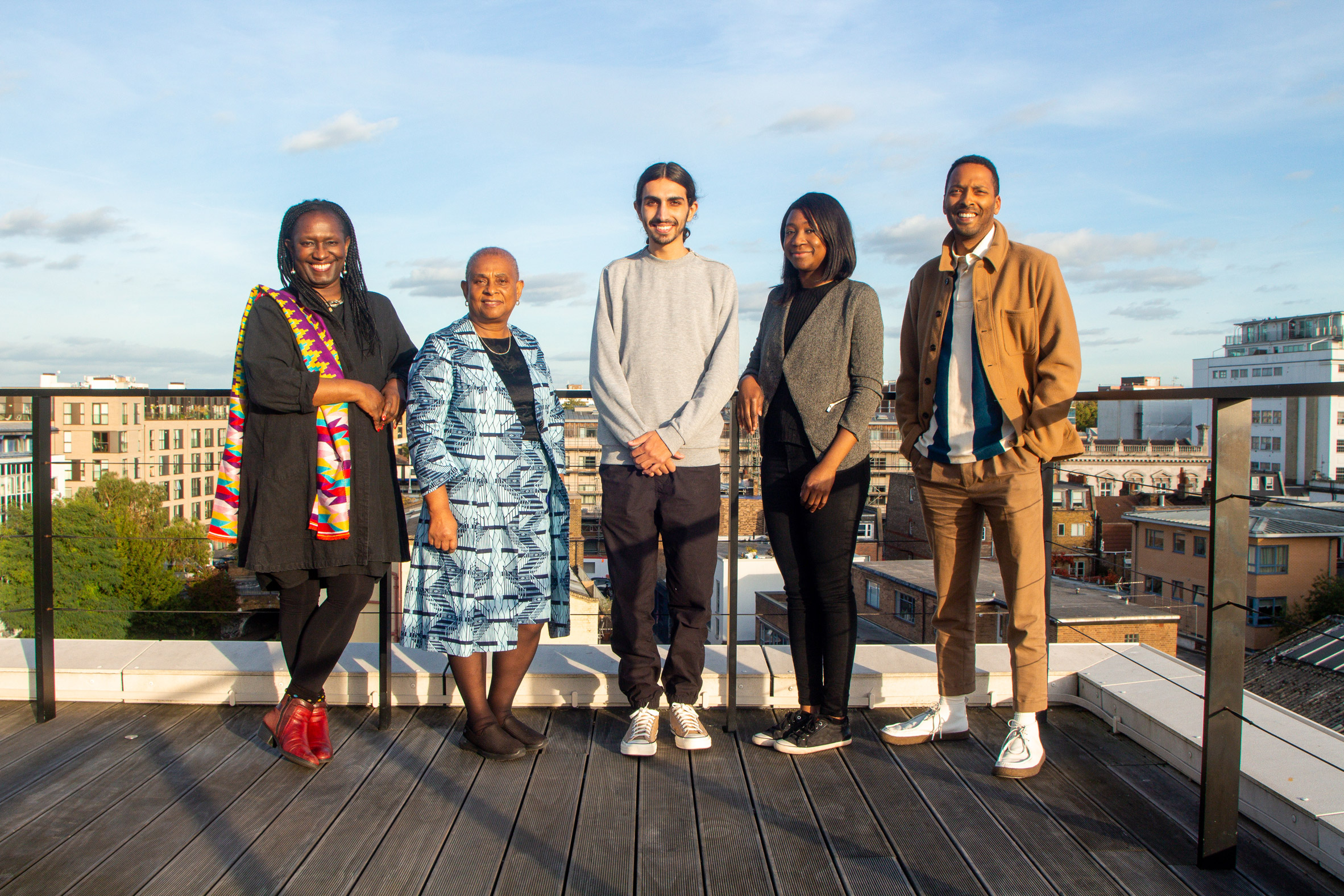 Elsie Owusu, Doreen Lawrence, two recipients of the Open Up bursary and Neal Shasore
Elsie Owusu, Doreen Lawrence, two recipients of the Open Up bursary and Neal Shasore
Currently, he claims, "social housing, affordable housing is done onto people rather than enabling them to do for themselves."
As part of his plans for the school, Shasore also launched Open Up, a fundraising campaign designed to support prospective LSA students from underrepresented groups.
"We want to start to open up a conversation," he explained. "Open Up is also a call to action: it's a demand, as I see it, from those underrepresented groups, telling the professions to open up."
Campaign to support students from minority backgrounds
The Open Up campaign has already secured £30,000 from a collaboration with the Stephen Lawrence Day Foundation (SLDF) to develop a programme to combat the profession's "systemic barriers to diversity". Bursaries for two current students of colour have been funded using the money.
A recent partnership with the Zaha Hadid Foundation will provide a further two bursaries for prospective students from low-income backgrounds.
For Shasore, the collaboration with the SLDF holds great personal significance and as a consequence, he takes the responsibility to make it a success very seriously.
The SLDF foundation was set up in response to the racially motivated 1993 murder of Stephen Lawrence, a Black British teenager and budding architect.
[ 
Read:
Architecture "is more elitist than the most elite university in the world" says Phineas Harper
](https://www.dezeen.com/2020/08/18/architecture-elitist-phineas-harper/)
"I feel privileged enough being appointed to run the school and even more privileged that one of the first big initiatives that I'm able to champion is in Stephen Lawrence's name," Shasore added. "That means something to a Black man."
Alongside the Open Up campaign, the LSA has recruited Afterparti's Thomas Aquilina to join the school in a special fellowship position called the Stephen Lawrence Day Foundation Fellow.
The role will see Aquilina lead the school's access and participation plan, including "conversations around curriculum reform", as well as providing a "visible role model" for students from underrepresented groups.
Shasore hopes that this approach will enable the school to become "a truly civic institution" with a focus on community-centric built environments.
The post Architecture education needs "decolonisation and decarbonisation" says London School of Architecture head Neal Shasore appeared first on Dezeen.
#all #architecture #interviews #education #architectureanddesigneducation #diversity #londonschoolofarchitecture



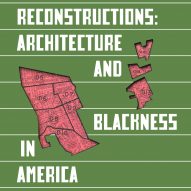



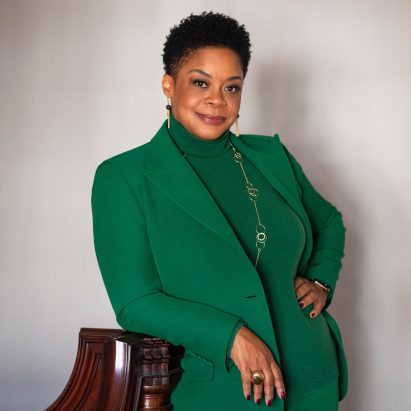
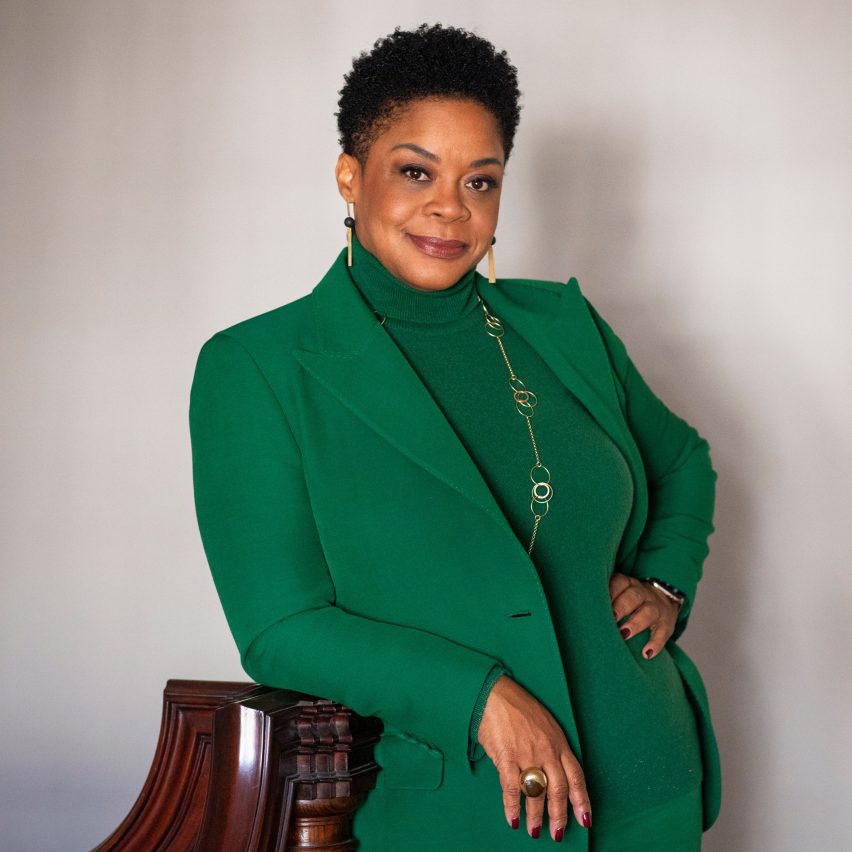
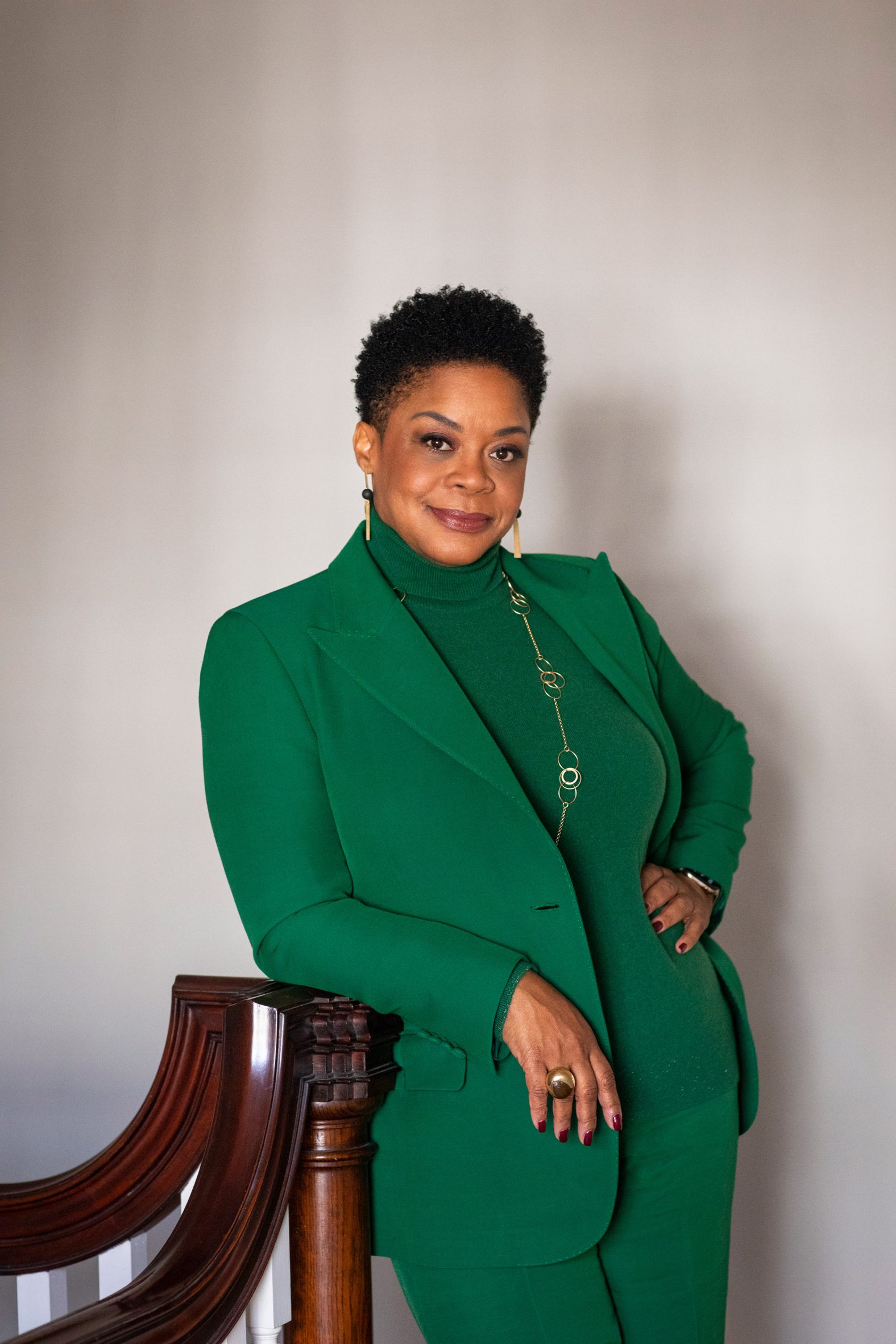 Crystal Williams is the 18th president of the Rhode Island School of Design
Crystal Williams is the 18th president of the Rhode Island School of Design